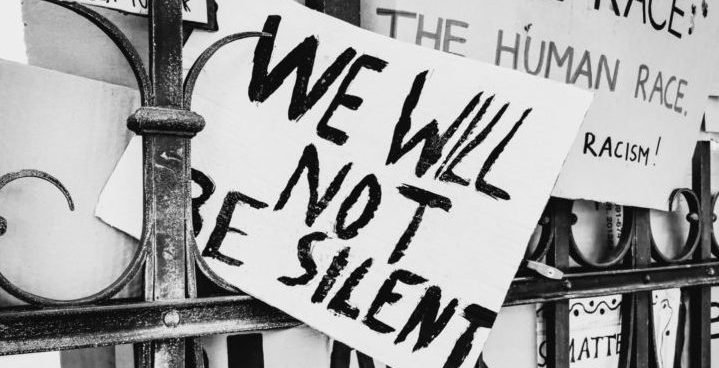7 key steps on how to talk about China without harming AAPI communities
7 key steps on how to talk about China without harming AAPI communities
FOR IMMEDIATE RELEASE
CONTACT: social@aaafund.org
In the early 1980s, a deep recession and soaring inflation hit America hard. Rising Japanese automakers quickly became the boogeymen for layoffs in American auto manufacturing. Because of these trends, some communities blamed their Asian American neighbors for rampant job losses and economic uncertainty. On June 19, 1982, Vincent Chin wound up dead as a result.
Language matters
As two men beat Vincent to his death, they hurled anti-Japanese slurs at the Chinese-American man. After Vincent died, the Asian American community fought for his murder’s designation as a hate crime — and lost. None of the three perpetrators served a single day in prison. As we remember Vincent today, we can’t help but remember the horrific lack of justice for his murder.
In 1982, Vincent Chin died after two men bludgeoned him repeatedly, shouting anti-Japanese slurs.
Forty years after Vincent’s death, that same ugly xenophobia comes for our community once again because of another global crisis, the covid-19 pandemic. Our rich ethnic diversity and unique American identity still does not matter to those desperate to find a scapegoat for complicated global issues. As hate crimes against AAPIs skyrocketed, our community re-learned how hard we still must fight for recognition.
Against this rising hate, AAPIs spoke up about how much language and rhetoric matters when talking about Asia. Yet, candidates running in the upcoming midterms keep othering communities to rally their bases. As Democrats, we cannot fall into these traps. So how should we counter these narratives without endangering the AAPI community?
The AAPI Clearinghouse’s 7 key insights on talking China
On May 4th, AAAFund convened an AAPI Clearinghouse call to discuss our community’s response to recent anti-China ads. Representative Grace Meng (NY-6) and AAPI leaders from around the country centered on 7 key insights to help Democrats frame a positive economic message:
Through polling, we know that addressing hate crimes is a top priority amongst all Americans. So, messaging on this issue will resonate within and without our community.
Complex issues around China demand nuance. We need to proactively drive open conversations with communities outside our own.
Additionally, we must continue our tough conversations with campaigns, coalition partners like labor, and the Democratic Party. Progressive candidates need to understand the impact of their language on our community. They also must respond to criticism from the local community and promote an inclusive, equitable economic narrative.
Our community needs AAPI elected officials and community leaders to act as trusted experts for those beyond our community.
These leaders can guide candidates in using culturally responsible, specific messaging such as:
Focus on the Chinese Communist Party (CCP) and specific government leaders;
Talk about economic policies that support American families and their ability to thrive in a rapidly changing economy;
Avoid sweeping language about the threat of China; and
Broaden the threat analysis to include climate change, the rise of authoritarianism, and predatory corporations.
Candidates should acknowledge that these economic issues cause real pain in American families. However, we must follow that with a vision for Democratic economic leadership by:
Highlighting legislation such as the Competes Act, which seeks to address supply chain gaps and American jobs; and
Comparing our progressive candidates’ records on jobs and the economy to their opponents.
The Democratic Party broadly must build stronger relationships with local AAPI communities. Our candidates can demonstrate commitment by showing up at our events and understanding our history, diversity, and needs.
Rising AAPI political star Rep. Grace Meng, D-N.Y. (center) at a press conference outside Manhattan federal court.
Pivoting to the future
We know the very real, traumatic consequences of hateful language. Unfortunately, the burden falls on us to combat xenophobia and racism against our community. Our leaders must be ready to mobilize and respond to rhetoric that may harm our community.
But ultimately, reacting to the hate is not enough. For years now, the AAPI community has claimed the title of fastest growing demographic in America. As a result, our community has the opportunity to lead the Democratic Party and shift to proactively shaping the narrative in and out of our community. We can and must paint a positive, inclusive vision for this country’s future.
###
Unless clearly identified as statements of the AAA-Fund, the views, opinions, analyses, and assumptions expressed in each blog or clearinghouse post are those of the author or contributor alone, and not those of the AAA-Fund.



